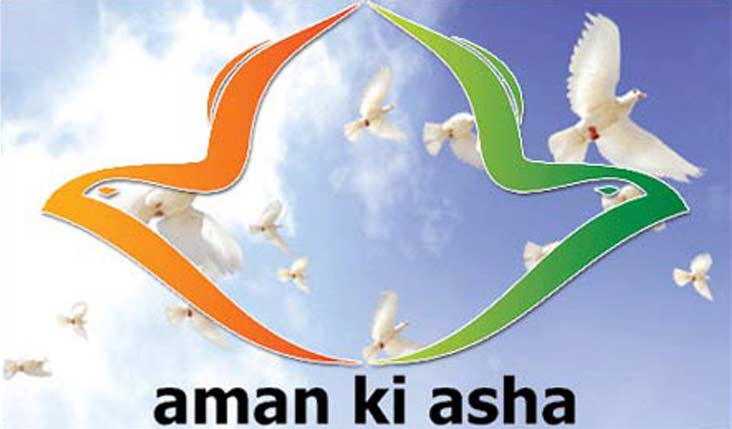By Ammar Shahbazi
Cultural and linguistic bonds of a civilization are stronger than its religious bonds, says professor Naeem ur Rehman Farooqi, former Pro Vice Chancellor of Allahabad University. “So the connection between India and Pakistan is inherent and intrinsic, something that no political and military power can ever erode”
In an interview with Aman Ki Asha, he said that the history of a civilisation cannot be divided along communal or even epochal lines. “You cannot say that on that particular day, the ancient era ended and the medieval began, it’s all a complex mixture of shared myth, values and beliefs.”
Born in Azamgargh, Prof Farooqi completed his secondary education from Gorakhpur and joined Allahabad University in 1971. In 1978 he went to University of Wisconsin on a Fulbright fellowship to complete his PhD on the political relationship between the Mughal and the Ottoman Empire. He learned Turkish at UW and spent six months in Istanbul going through the archives of the Ottoman Empire related to the Mughals from 1556 to 1748.
“I was the first historian to delve into the subject, it was a delightful experience. A new world opened up to me,” he said of his experience.
The division of Indian history among communal lines began in 1817 with the publication of the books ‘The History of British India’ by James Mill, holds Prof. Farooqi. “Prior to that, the history of this region was not studied as the history of Hindus and Muslims. The idea of dividing the Indians among Hindus and Muslims never occurred in the academia before the publication of this book.”
Mill’s book soon made it into the canon of history books by the British and then it made its place in “mandatory readings” in British civil service exams. “That’s where the seed of discord was sown among the intelligentsia. As new invaders, the British opted for the divide and rule policy.”
On the creation of Pakistan, Dr. Farooqui holds the view that in the initial years, the partition put the Muslims who chose to stay in India, in a very disadvantageous position. “The cream of the Muslim community came here (to Pakistan), leaving the masses floundering in confusion,”
But with the passage of time, said Farooqi, the Indian Muslims stood on their feet and are now as ambitious and vibrant as any other community in the country. “What worked for the Muslims in India is that they are scattered in almost all the states as a sizable minority that the politicians cannot ignore, so their rights are more or less safeguarded.”
Commenting on the state of Pakistan, Dr. Farooqi said that it’s unfortunate that Pakistan lost its founder in the early years. “Had Jinnah lived longer, Pakistan would have been a very different place from what it is today,” he said. Farooqi said anybody who is faintly acquainted with the speeches of Jinnah knows that he was a secular man and his idea of Pakistan was to have a country that protects the rights of the Muslims and it’s all.
In that respect India was lucky. “Nehru lived for 17 years after the British left, he appointed Maulana Abdul Kalam Azad his education minister. Dr Azad gave India the education system that the country follows to this day. He inculcated secular values in the textbooks and raised a generation based on the essentials that India calls its own.” Nevertheless, Dr. Farooqi does not deny that there has been a rightist influence and fiddling with history, leading to debates about tampering with the education system that continue to this day.
What does he, someone who has carved out a glittering career in Humanities, think about the future of humanities – are subjects like English literature, history, political science, being sidelined due to the rising demand of hardcore business and computer science courses? “No doubt that there is a decline in the demand of humanities, but the situation is worse in Pakistan, when compared to India,” responded Dr Farooqi. He said that his own son is pursing a degree in computer studies.
In India, he says, the perennial hunger for the civil services makes the subjects of humanities popular. “We have our craze for MBA and IT, but the young Indians still find the government bureaucracy a viable option, which keeps the humanities subject always in the list of preferences.”
Commenting on the future relationship of India and Pakistan, Dr. Farooqi said that efforts like Aman ki Asha are the rays of hope that people of both countries look to.
“Pakistan and India have a bitter history of rivalry, but as a historian I can say that the world has seen worse cases of animosity. France and Germany are shining examples of the worst and the best relationships between neighbours. Look at them today.”








